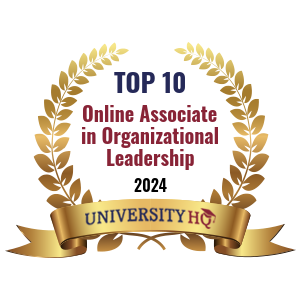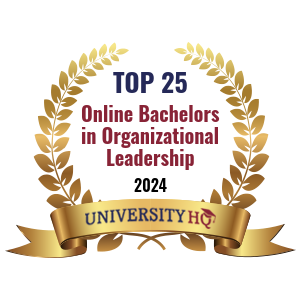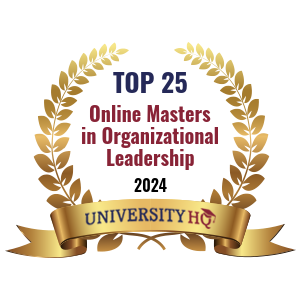What is Organizational Leadership?
New Hampshire is a small state with a big economic footprint. Its proximity to Massachusetts, Boston, and the I-95 corridor set it up for economic success in a variety of fields. Many from Boston head to the bucolic New Hampshire countryside to stay in its hotels or to purchase country homes. In turn, those second homes may spend much of their time rented out to visitors from Boston or elsewhere.
An organizational leader is a business professional who sees the big picture in their company and the larger economy. Organizational leaders can take a step back from the day-to-day or even quarterly concerns of their company to see larger trends. They are thus able to help their organization discover the best trajectory for the future. This may involve seeking new product lines, investigating mergers or acquisitions, or downsizing certain areas of the business.
While some in leadership positions work as permanent employees, many work as consultants. Consultants who are known for organizational leadership may be called to assess a business when the existing leadership is unsure of how they should proceed. They may also be hired for their objectivity, which may be able to temper or inform existing opinions in the C-suites.
Thus, the life of an organizational leadership expert may involve a series of projects and clients who need their help. They may need to do a lot of traveling, but then some clients may not require such a hands-on approach and allow remote work, though with at least one in-person meeting where the organizational leadership expert presents their findings and final opinions.

Featured Online Programs
Online Leadership Education in New Hampshire
This is part of why New Hampshire's top industrial sector is real estate. Real estate generates over $12 billion in annual revenues for the state, placing it 38th in national real estate rankings. Interestingly, the second strongest economic driver for the state is the sector known as professional and business services. This area includes a wide spectrum of economic activities including waste removal, commercial laboratory services, and even various business consultancies. It could be surmised that many consulting firms are headquartered in New Hampshire to take advantage of the scenery and perhaps affordable real estate while doing most of their business in Boston, Providence, or even New York City.
The third strongest sector in New Hampshire includes education, social services, and healthcare, as well as affiliated social supports. Closely behind is the state's manufacturing industry, which yields revenues closing in on $10 billion, the 36th largest manufacturing industry in the nation. Rounding out the top five largest industries in New Hampshire is the finance and insurance sector, which generates nearly $7 billion each year.
Given the strength of professional and business services in New Hampshire, it's clear that there is a strong need for organizational leadership professionals. That is, organizational leaders are often found in consulting firms since their objectivity provides them with the perspective most needed by leadership. New Hampshire has responded by working hard to bolster the educational infrastructure needed to produce a steady stream of leadership experts.
The New Hampshire legislature funds each of its public community colleges, four-year colleges, and universities to ensure that they produce the best qualified organizational leaders possible. Leaders of these institutions of higher learning respond by seeking out the top academic minds to teach their students. They also look for organizational leadership experts from the local community. A local MBA who makes leadership their specialty may be particularly valuable for teaching undergraduates. This is because they can bring special insights from the front lines of the New Hampshire, and New England, business community.
Online Associates (AS)

An associate organizational leadership degree is a great way to launch a career. Students who are looking for a career in business can complete their two-year study of organizational leadership in a community college and go on to land an entry-level position with a local company. While they may not be hired to assess their new employer's operations and corporate trajectory right away, their perspectives may be useful in their work and may help them see what moves they need to make to get ahead. However, more study will be needed before their organizational leadership knowledge and skill can be fully of use in their career.
Online Bachelors (BS)

A bachelor’s organizational leadership program is perhaps the best starting point for a successful business career. Employers tend to prefer candidates with four-year degrees because they have typically explored the topic in a thorough manner. Bachelor’s organizational leadership degree programs also offer students the opportunity to work as interns under the tutelage of both on-site mentors and their faculty advisors back on campus. An internship can make the difference between nailing an interview and not quite making it.
Programs in this field will offer courses in human resources, organizational behavior, business administration, leadership and management theory and leadership practices, practicums that allow them to practice management skills, etc. Bachelor's degree programs are also known for allowing students the leeway to become more well-rounded with electives and minor concentrations, if not double majors. An organizational leadership student might augment their primary major area with courses in sociology, economics, or statistics, among other choices. They can also start looking at master’s organizational leadership degree programs in their third year of undergrad and start preparing for a C-suite position later in their career.
Find Your Online Organizational Leadership Program
Online Masters (MS)

A master’s organizational leadership degree is the gold ring for all business students. Students have a few options when it comes to their master’s degree. They can take an MS organizational leadership degree, a Master of Business Administration (MBA) with an organizational leadership concentration, or a dual-MBA that combines their MBA with a second master’s (either other business programs or a different focus).
The dual-MBA option can take many forms. Students may opt for an MS in organizational leadership paired with an MBA that concentrates on something like corporate finance. They could also choose an MS in economics with an MBA that concentrates on organizational leadership. There are many options, even including a law degree in addition to top business training, which can teach you problem solving skills, strategic planning, organizational change, and much more about how to run public and nonprofit organizations.
A master’s organizational leadership degree program, in whatever form, has one key advantage for students – networking. During a master’s degree program, students form bonds with like-minded friends who become terrific contacts in the business world. Graduates will be ready for all kinds of leadership positions.
Online Doctorate (PhD)
The business community doesn't often seek out PhDs when they are looking to fill a top management position. Doctorate degrees are typically thought of as being too intellectually focused, rather than having a firm grasp of the day-to-day realities of business. Nevertheless, earning a PhD may one day take the place of today's MBAs. The business community is packed with MBAs, and a PhD may help a candidate stand out from the pack.
A PhD is also handy for several other careers or business applications. Many PhD graduates pursue a career in business consultancy. The top academic credentials are impressive to potential clients and are also great when starting one's own consulting firm.
Naturally, many PhD students are aiming at a career in academia. Upon graduation, students may pursue tenure track positions as teaching faculty or research faculty. Research faculty members spend their time attracting grants from interested parties who want to receive in-depth research into the topics that matter most to them. In this way, a PhD is essentially a consultant with an academic footing.
Become a Leadership Professional in New Hampshire
New Hampshire is a diverse economy that is home to many students who are raised by farmers, BnB proprietors, or businesspeople in Concord. Even so, the path to success as an organizational leader may not be clear to some. However, the road isn't hidden, and it starts with the right degrees.
While high school students may not be able to study organizational leadership or business management, they can lay the foundation for later success. One key way any high schooler can begin to prepare is by focusing their energies on mathematics. Math is integral to every function of business and provides a solid foundation in analytical thinking. Students who are lucky enough to have access to business-related courses, including accounting or economics, are encouraged to take them. Further, if their local school system has a STEM-focused high school, they should certainly apply. Even if there's no business track, the training in analytical thinking and scientific methods will be helpful later.
Find Online Organizational Leadership Programs
For college, all students should seek out business schools that are fully accredited. The minimum standard for accreditation is a CHEA-approved regional credential. However, students who find a program with credentials from AACSB, ACBSP, or IACBE should certainly consider those for their application. Business degree programs with such program-specific accreditation are sure to be top-quality and nationally recognized for excellence. Keep in mind that competition for those programs is sure to be fierce.
During the third year of their undergraduate studies, students should start thinking about graduate schools. Most will gravitate toward an MBA degree program, but you may also want to consider a dual-MBA program. It can be a good idea to jump directly from one's undergraduate degree program into an MBA since the transition will be smooth from one academic setting to the next. Students who do so also won't have to negotiate their employment status.
In fact, organizational leaders may want to strongly consider the dual-MBA option. Since organizational leadership demands a big-picture, long-term view of business, a second master’s that supports such a view is advised. One great option is economics, especially a macroeconomics focus where students can consider big trends in the greater economic system, including the global economy.
Three prominent options include:
Potential Careers for Leadership Graduates
- General Manager and Operations Manager
These management positions require professionals to oversee many working parts in a single firm. General management often has deep experience in one specific part of a business and then training in the other aspects. To succeed, general/operations managers need strong leadership skills, analytical abilities, and communication skills. - Project Coordinator/Manager
This position is akin to that of a project manager. Successful professionals in this field need to have excellent communication skills, leadership skills, organizational abilities, and strong leadership qualities. Often, project coordinators work for consulting firms, but they are also found in larger organizations. - Business Management Analyst
Analysts often have MBA degrees and a lot of experience in management. To become a management analyst, students need to have top analytical skills, a degree from an accredited management school, and top business communication skills. - Compensation Benefits and Job Analysis HR Manager
This is a position most often found in the human resources department of a larger firm. Compensation, benefits, and job analysis managers may also work for HR consulting firms who contract with smaller firms in need of HR services. They may also work for recruiting firms who need to keep their finger on the pulse of trends in compensation and benefits packages. - Chief Information Officer
To attain this coveted C-suite position, it will be necessary to gain a lot of experience in information technology or computer science. CIOs often have MBA degrees on top of their IT training. In fact, many choose to concentrate on information technology during their MBA degree, thus gaining top training in general business courses, organizational leadership courses, and information technology. - Chief Executive Officer (CEO)
This is the very top of every organizational chart in every corporation. CEOs often get all the glory, as evidenced by famous CEOs such as Bill Gates and Steve Jobs, but they also get all the blame when things go wrong. To earn the top position, you’ll need to either start a firm, as in Gates and Jobs, or to earn an MBA and work up through the ranks. - Non-Profit Executive Director
While for-profit organizations are led by CEOs, non-profit organizations have executive directors. The positions are very similar in that they both bear ultimate responsibility for the organization's success or failure. Non-profit executive directors need to have strong interpersonal communication skills to help attract top donors to their cause. - Politician
These professionals are often passionate individuals who have decided to dedicate their life's work to helping the wider society. While anyone who can garner votes can become a politician, certain degrees such as political science and law are terrific backgrounds for political office. In fact, most politicians are lawyers, or have at least completed law school and passed the Bar Exam. - Business Consultant
Consultants are often considered business mercenaries. They work for any firm that hires them and then help that firm with their specific expertise. Some business consultants are experts at accounting and auditing. While others may analyze a firm's management structure and help them become more efficient and profitable.- Training and Development Manager
- Executive Director
- Education Administrator
- Legislators
- Community Organizer
- Information Systems Managers
- Community Service Manager
- Technology and IT Director
- Supply Chain Manager/Logistician
- Healthcare Administrator
- Healthcare Manager
- Industrial Production Manager
- Advertising and Promotions Manager
- Marketing Manager
- Public Relations Manager
- Fundraising Manager
- Administrative Services Manager
- Facilities Manager
- Human Resources Manager
- Sales Manager
Search All Programs
